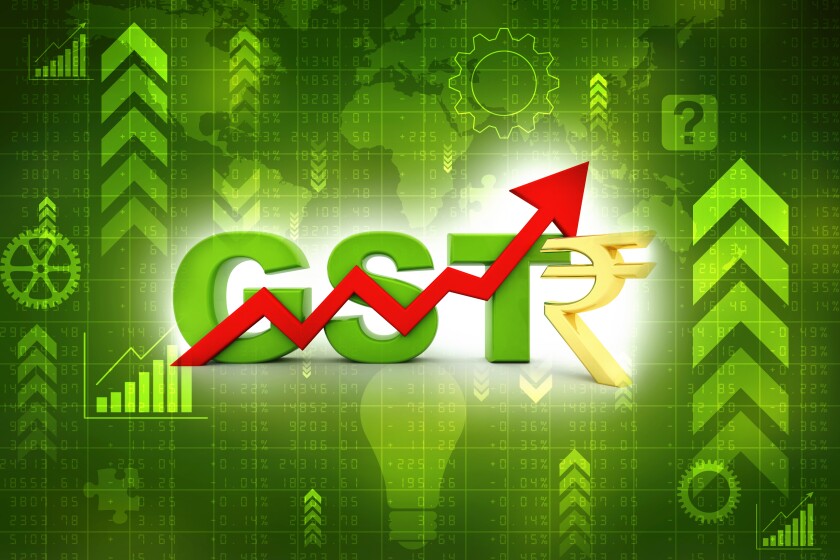Internally generated services
Internally generated services are activities performed internally by a branch office (BO) – including a head office (HO) or liaison office – for the benefit of another BO.
In goods and services tax (GST), supplies between distinct persons – that is, different GST registrations or different establishments of a person – are liable to GST even if they are made without any consideration. Similarly, the importation of services by a person from any of its other establishments outside India is liable to GST even if it is made without any consideration.
In respect of the taxability of internally generated services, Central Board of Indirect Taxes and Customs (CBIC) Circular No. 199/11/2023-GST, dated July 17 2023, clarified the following.
In respect of internally generated services provided by an HO to BOs eligible for full input tax credit (ITC), the following apply:
A tax invoice is not mandatory. The value of such services may be deemed to be declared as nil by the HO to the BO.
In terms of the second proviso to Rule 28, the value declared on the invoice by the HO to the BO in respect of a supply of services shall be deemed to be the open-market value of such services, irrespective of whether the cost of any component of the services, such as employee cost, has been included in the value of the services in the invoice.
In respect of internally generated services provided by an HO to BOs not eligible to full ITC, the cost of the salary of employees of the HO is not mandatorily includible in the computation of the value of the services.
Pursuant to this circular, in respect of services provided between BOs in India and BOs outside India, tax implications do not arise in so far as the recipient is eligible to full credit. Even if full credit is not available with the recipient, the exclusion of employee cost is a valuable relief to taxpayers. It remains to be seen whether the circular’s clarifications will be implemented in cases where the cost of the internally generated services is only the employee cost.
Many taxpayers with establishments and subsidiary companies outside India are facing litigation based on the intercompany arrangements and transfer pricing adjustments made between them. The clarification on internally generated services is helpful in establishing the impact of GST, at least in scenarios of taxpayers having an establishment outside India. It is hoped that a clarification for intercompany services between related parties (between a holding company and its subsidiary companies) is issued following the lines of this circular.
Non-taxability of holding securities and activities performed by directors
It has been clarified that the holding of shares in a subsidiary company by the holding company cannot be treated as a supply of services by a holding company to the subsidiary company and cannot be taxed under GST (see Circular No. 196/08/2023-GST, dated July 17 2023). The supply of goods or services, or both, between related persons when made in the course or furtherance of business is liable to GST even without any consideration. Therefore, this clarification has settled the doubts surrounding the possible GST implications of holding securities in a subsidiary company.
Exports
Important clarifications to export-related provisions are noted below:
A refund of IGST paid is available even if export proceeds are realised after the time limit stipulated under law (see Circular No. 197/09/2023-GST, dated July 17 2023); and
Export remittances received in a Special Rupee Vostro Account are admissible as consideration for the export of services (see Circular No. 202/14/2023-GST, dated October 27 2023).
GST implications of online money gaming
The ruling in Gameskraft Technologies v DGGI (2023) held, inter alia, that online rummy games and other online games are not taxable as ‘betting’ and ‘gambling’. To reach this conclusion, it was held that these games are substantially and preponderantly games of skill and not of chance, and that Entry 6 in Schedule III to the Central Goods and Services Tax Act, 2017, taking actionable claims out of the purview of the supply of goods or services, would clearly apply to games of skill, and only games of chance such as a lottery, betting, and gambling would be taxable.
Meanwhile, special provisions in respect of ‘online money gaming’ have been introduced with effect from October 1 2023 in India’s GST law. The highlights of these provisions are noted below:
Online money gaming has been defined to mean “online gaming in which players pay or deposit money or money's worth, including virtual digital assets, in the expectation of winning money or money's worth, including virtual digital assets, in any event[,] including [a] game, scheme, competition or any other activity or process, whether or not its outcome or performance is based on skill, chance or both and whether the same is permissible or otherwise under any other law for the time being in force.”
Compulsory registration for every person supplying online money gaming from a place outside India to a person in India.
The insertion of Section 14A of the Integrated Goods and Services Tax Act, 2017 (the IGST Act) to provide a simplified registration scheme, including a single registration where the supplier of online money gaming is located outside India.
Online money gaming has been notified under a proviso to Section 5(1) of the IGST Act. According to the notification, integrated tax under Section 5(1) of the IGST Act shall be leviable on the importation of online money gaming as goods, and a proviso to Section 5(1) of the IGST Act shall not apply to the same.
Under the special valuation rule for online money gaming, the value of the supply shall be the total amount paid or payable to, or deposited with, the supplier by way of money or money’s worth, including virtual digital assets, by, or on behalf of, the player.
Considering how service providers may never have a fixed establishment in India, how the tax department would manage to locate online money gaming service providers and attach tax liability to them remains to be seen.
Other changes
Some of the other changes to the GST law inserted through the Finance Act, 2023 are noted below:
The transportation of goods to a place outside India would be liable to GST if the service is received by a registered person in India;
The taxability of services as online information database access and retrieval services is widened; and
A separate set of offences has been created for e-commerce operators.
The changes came into force with effect from October 1 2023. Please refer to a previous article by Lakshmikumaran & Sridharan in which these changes to the GST law and their impact on multinational corporations are discussed.
Final thoughts on the updates to GST in India
The trend of clarifying contentious issues through circulars is evident from the recap of changes made to the GST law in 2023 in this two-part series. This proactive approach of the government is appreciable and may even help taxpayers in mitigating avoidable litigation and ease their compliance burdens. However, considering the interpretative issues arising from these circulars, it is important for taxpayers to closely analyse the impact of these changes on their businesses.
Read the first part of the series on changes to Indian GST in 2023 here.














